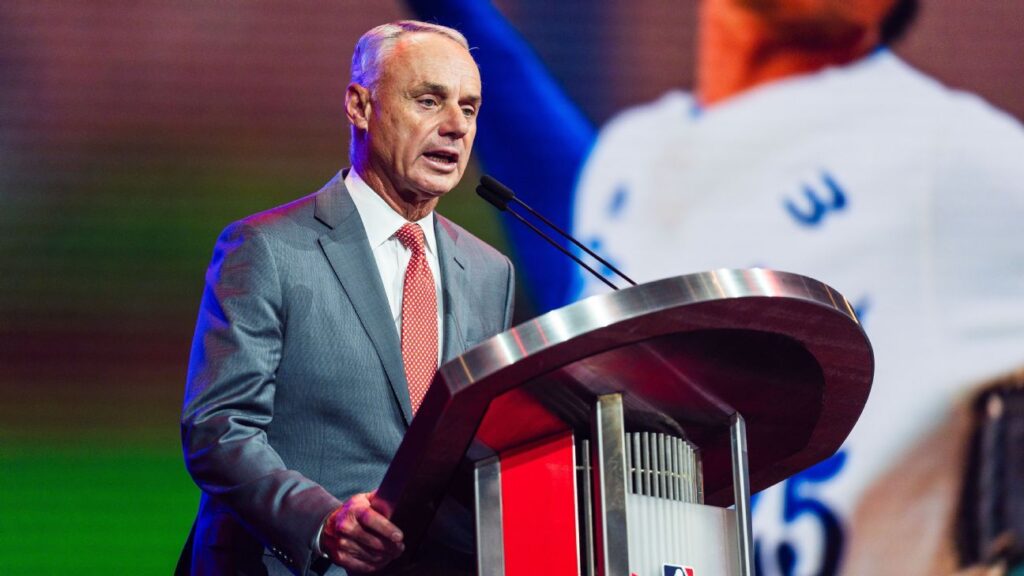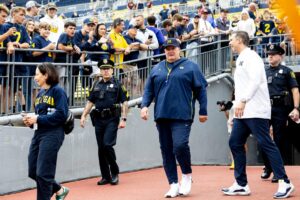
UPDATE: Major League Baseball (MLB) is on the brink of finalizing significant broadcast agreements with multiple media giants for the 2026 through 2028 seasons. Commissioner Rob Manfred confirmed these developments just moments ago during a Q&A session at Front Office Sports’ “Tuned In” event.
These imminent deals include a regular-season package with ESPN, coverage of the wild card series and Sunday night regular-season games with NBCUniversal, the All-Star Home Run Derby with Netflix, and regular-season games with Apple TV. Manfred noted that negotiations are also close for in-market rights covering teams from Arizona, Cleveland, Colorado, Minnesota, and San Diego.
“We have agreements in principle,” Manfred stated. While some issues remain to be resolved, he expressed optimism about pushing these deals across the finish line. The urgency of these negotiations underscored MLB’s commitment to maintaining a strong presence on broadcast television, particularly with ESPN, after they opted out of their previous deal for Sunday night games and Home Run Derby rights.
“If these agreements are finalized, we will have made significant progress,” Manfred remarked. He emphasized the importance of Sunday night baseball on broadcast television and described the partnership with Netflix as an exciting new opportunity for the league.
Discussions with ESPN president James Pitaro resumed earlier this year at the Allen & Co. Sun Valley Conference. “There was mutual interest in remaining partners,” Manfred explained, highlighting the creative solutions both sides explored to align their goals.
As MLB prepares for these new broadcast contracts, Manfred anticipates a shift in how rights packages will be structured starting in 2029. “There will be more games available in national packages,” he predicted, but also acknowledged the need for local solutions given the sheer volume of games—2,430—played each season.
“Getting more national coverage and maximizing revenue in today’s media landscape has to be our top priority,” he noted, reinforcing the focus on fewer channels for each team’s games. The potential impact of these agreements is significant, not just for the league but for fans eager to access games more efficiently.
As these deals near completion, fans and stakeholders alike are watching closely. The evolving landscape of sports broadcasting promises to reshape how millions engage with America’s pastime in the coming years.
Stay tuned for more updates as MLB moves towards finalizing these critical agreements, which are expected to redefine sports viewership and accessibility in the near future.






